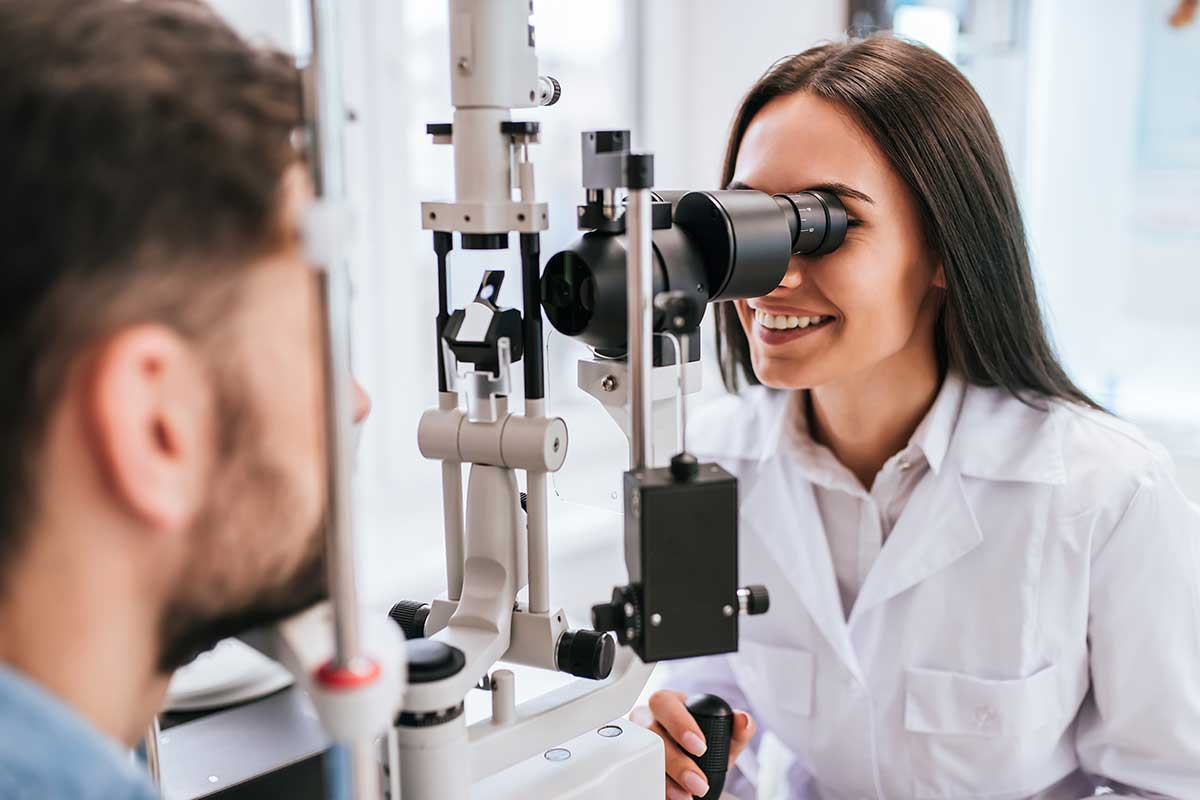
Ophthalmologist
Watch our video about Ophthalmologist
An Ophthalmologist is a medical specialist dedicated to the diagnosis, treatment, and prevention of eye diseases and vision disorders. They are trained to handle both medical and surgical conditions affecting the eyes and visual system.
Ophthalmologists play a vital role in correcting vision problems, preventing blindness, and treating eye diseases such as glaucoma, cataracts, and retinal disorders. They also prescribe glasses, contact lenses, medications, and surgical treatments to help patients maintain optimal eye health.
What Conditions Does an Ophthalmologist Treat?
An Ophthalmologist specializes in diagnosing and managing various eye conditions, including:
- Refractive Errors (Myopia, Hyperopia, Astigmatism, Presbyopia) – Vision problems that affect the ability to see clearly at different distances.
- Cataracts – A clouding of the eye's lens that causes blurred vision and can lead to blindness if untreated.
- Glaucoma – A condition that damages the optic nerve due to increased eye pressure, potentially leading to vision loss.
- Diabetic Retinopathy – A complication of diabetes that affects the blood vessels in the retina, leading to vision impairment.
- Macular Degeneration – A disease that affects the central vision, making it difficult to read, drive, or recognize faces.
- Dry Eye Syndrome – A chronic condition where the eyes do not produce enough tears, causing discomfort and irritation.
- Eye Infections and Inflammations – Conditions such as conjunctivitis (pink eye) and uveitis that require medical treatment.
How Can an Ophthalmologist Help?
An Ophthalmologist provides essential eye care to preserve and improve vision. Through specialized treatments, they help patients manage eye diseases, reduce discomfort, and enhance visual function.
Beyond treatment, ophthalmologists focus on preventive eye care, recommending routine checkups, protective measures, and lifestyle changes to avoid vision loss. They also educate patients on eye health habits, contact lens safety, and the importance of early diagnosis for eye diseases.
What Tests Does an Ophthalmologist Order?
To diagnose and monitor eye conditions, an Ophthalmologist may request several tests, including:
- Visual Acuity Test – Measures the ability to see clearly at various distances.
- Refraction Test – Determines the correct eyeglass or contact lens prescription.
- Tonometry (Eye Pressure Test) – Detects glaucoma by measuring intraocular pressure.
- Retinal Exam (Fundoscopy) – Examines the retina for signs of disease, including diabetic retinopathy and macular degeneration.
- Slit Lamp Examination – A detailed examination of the eye's structures, including the cornea, iris, and lens.
- OCT (Optical Coherence Tomography) – A high-resolution scan of the retina to detect early-stage eye diseases.
- Corneal Topography – Maps the surface of the cornea, useful for diagnosing astigmatism and planning eye surgery.
When Should You See an Ophthalmologist?
It is crucial to visit an Ophthalmologist for routine checkups and when experiencing any vision or eye health concerns. Some key reasons to schedule an appointment include:
- Blurred or Distorted Vision – If you have difficulty seeing objects clearly, whether up close or at a distance, you may need glasses, contact lenses, or further evaluation for eye diseases.
- Frequent Headaches or Eye Strain – If you experience headaches after reading, using screens, or working in dim light, this could indicate an uncorrected vision problem that requires assessment.
- Sudden Vision Loss or Changes – Any sudden loss of vision, flashes of light, or dark spots in your field of view could be signs of serious conditions like retinal detachment or stroke.
- Red, Painful, or Swollen Eyes – Persistent redness, pain, or swelling in the eyes may be due to infections, allergies, or inflammatory diseases that require treatment.
- Increased Sensitivity to Light – If your eyes become excessively sensitive to light, this may indicate corneal problems, migraines, or other eye disorders.
- Family History of Eye Diseases – If you have a family history of glaucoma, macular degeneration, or other hereditary eye conditions, early screening is essential for prevention.
- Routine Eye Exams – Even without symptoms, adults should have an eye checkup every one to two years, while those with diabetes or high myopia should have more frequent visits.
If you are experiencing any of these symptoms, schedule an appointment with an Ophthalmologist at Clinic Consultation today. Early detection and treatment can prevent vision loss and ensure long-term eye health.
How to Prevent Eye-Related Conditions?
Protecting your vision requires daily eye care habits and regular screenings. Here are essential steps to reduce the risk of eye diseases:
- Wear sunglasses with UV protection – Prolonged sun exposure increases the risk of cataracts and macular degeneration.
- Take breaks from screens – Follow the 20-20-20 rule: every 20 minutes, look at something 20 feet away for 20 seconds to reduce eye strain.
- Maintain a healthy diet – Foods rich in omega-3, vitamin A, and antioxidants promote good eye health.
- Avoid rubbing your eyes – This helps prevent infections and irritation, especially if your hands are not clean.
- Stay hydrated – Drinking enough water prevents dry eyes and maintains tear production.
- Quit smoking – Smoking increases the risk of cataracts, macular degeneration, and optic nerve damage.
- Schedule regular eye exams – Routine checkups help detect vision problems before they become severe.
What to Ask an Ophthalmologist During Your First Consultation?
To make the most of your visit, consider asking your Ophthalmologist the following questions:
- Do I need glasses or contact lenses?
- Are my symptoms related to an underlying eye disease?
- What steps can I take to protect my vision?
- How often should I have an eye exam?
- Are there any treatments available for my condition?
- What lifestyle changes can help improve my eye health?
- Do I have any risk factors for serious eye diseases?
Understanding your eye health ensures better long-term vision care and disease prevention.
If you need expert eye care, book an appointment with an Ophthalmologist at Clinic Consultation today. Our specialists provide comprehensive diagnosis, treatment, and vision correction solutions.
Click here to schedule an appointment online